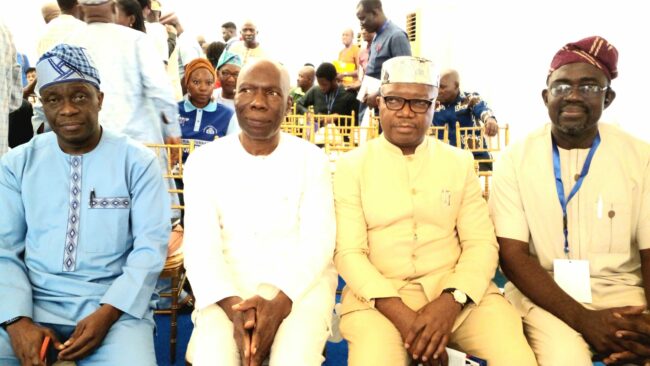
A legal luminary and research fellow at the Institute of Advanced Legal Studies, University of Lagos, Akoka, Mr David Oluwagbami, has revealed that book publishers, particularly in Nigeria, need not lack money if they actually open their minds to knowledge that would help them grow and thrive in the industry.
He declared that there are many opportunities and laws that many book publishers and the book industry generally are not aware of, let alone exploring, in Nigeria.
Oluwagbami raised this concern as a guest speaker at a workshop organised by the Nigerian Publishers Association( NPA) at recent three-day International Book Fair held in Lagos.
He spoke on “Building prosperity through exploration of related rights of published books for sustainable development,” giving tips to change the narrative.
He said that even though there is a serious economic crisis worldwide, the data from the World Intellectual Property Organisation (WIPO) indicates that there is relative prosperity in the book publishing subsector.
He said the only bad news concerning this exposition is that African countries, including Nigeria, have not substantially tapped into the emerging prosperity.
According to him, the dominant actors in the publishing markets globally are the US and the EU.
Countries such as South Korea, Japan and India are also doing better, while all the countries in Africa are far behind
He said that was why he commended the Nigerian Publishers Association for making efforts to empower its members with the requisite knowledge they need to change the narrative and become beneficiaries of the emerging, flourishing market.
Oluwagbami, a former company secretary and legal adviser at University Press Plc, Ibadan, declared that even though there is no body of law currently known as Book Publishing and Rights Law, what is certain is that there are general legal business rights frameworks.
He listed them to include the country’s constitution, the Copyrights Act, the law of contracts, the National Library Act, company law, laws relating to licencing, and so forth, that they can explore to thrive in their businesses.
He said all those related rights and laws are rich and that what they need to do is understand the nitty-gritty embedded in each of them and know how to turn them into goldmines.
He made references to such rights as the Copyright Act of 2022, the law of contracts, property rights, reprint rights, translation rights, performer rights, same-language rights, and rights sales, among others.
He said there are lots of ways a book publisher who understands how to explore those rights can profit from the system.
He said the Copyright Act, for example, protects authors’ intellectual property and, at the same time, gives market opportunity to those who can add value to the original published work.
He also said book publishers could get permission to reprint interesting books whose authors have died and whose relatives have no interest in publishing new editions.
“Book publishers can also make money from the university’s inaugural lectures.
“I don’t know of any other Nigerian university apart from the University of Ibadan that bothers about its inaugural speeches after delivery.
“So, book publishers can enter into agreements with as many universities as possible to publish their inaugural speeches as books, serialise them, and sell them back to them and the members of the public.
“Acting as an agent for literary work is another veritable way to make money in book publishing,” he added.
He said what the industry players need to do is effectively explore these rights opportunities, make money through them, and sustain their businesses rather than complain about lulling businesses.
Speaking earlier, the President of the Nigerian Publishers Association, Uchenna Anioke, who was represented by the vice president, Lukman Dauda, harped on the benefits of the workshop, saying it is designed for members to gain new knowledge for better service delivery.
He said the guest speaker was carefully selected as an expert to open their eyes and minds to the right route to go about it, urging them to be the doers of whatever knowledge they gained from the lecture.
Speaking on the sidelines to the Nigerian Tribune, the executive secretary of the NPA, Mr Emmanuel Abimbola, said the association had made it a routine to bring together members for a workshop to end their participation in the yearly International Book Fair.
He said that even though the book industry, including publishing, is challenged just like other sectors of the economy, the sector would remain a force to be reckoned with in the global space.
ALSO READ THESE TOP STORIES FROM NIGERIAN TRIBUNE










